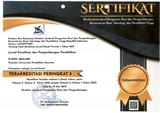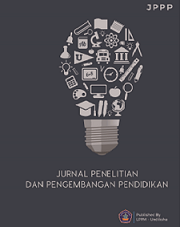The Comparison of Satisfaction, Commitment, and Performance Between Female and Male Students
DOI:
https://doi.org/10.23887/jppp.v8i2.74747Keywords:
Comparison, Satisfaction, Commitment, Performance, GenderAbstract
Education in higher education is a concern for many parties, especially related to the output of students from these universities. Various problems arise in the process of producing student outcomes that are by the demands of the times. The results in the form of student achievement and performance are very helpful for universities to reach their goals. Development, acceleration, and improvement of human resource output are the main concerns, especially in the Galileo College of Economics (STIE). This research focuses on student satisfaction, commitment, and performance. This research is a quantitative study involving 185 students as respondents. The purpose of this study is to see the comparison of satisfaction, commitment, and performance between male and female students. The research data was collected using a questionnaire, and processed with Amos SEM statistics. The results of the multi-group comparative analysis show that there is a positive and significant influence between satisfaction, commitment, and performance of women and men. The findings in this study found that satisfaction with women's performance is the same and insignificant. For this reason, the campus needs to pay attention to student satisfaction, commitment, and performance. For future research, it is necessary to consider other variables not examined in this study, such as the environment, and comparisons between students in universities. In conclusion, achievement is the result of work that a person achieves both in terms of quality and quantity in doing work by the responsibilities given to him.
References
Abdullah, M. I., Huang, D., Sarfraz, M., Ivascu, L., & Riaz, A. (2021). Effects of internal service quality on nurses’ job satisfaction, commitment and performance: Mediating role of employee well-being. Nursing Open, 8(2), 607–619. https://doi.org/10.1002/nop2.665. DOI: https://doi.org/10.1002/nop2.665
Afshari, L., Young, S., Gibson, P., & Karimi, L. (2020). Organizational commitment: exploring the role of identity. Personnel Review, 49(3), 774–790. https://doi.org/10.1108/PR-04-2019-0148. DOI: https://doi.org/10.1108/PR-04-2019-0148
Afthanorhan, A., Awang, Z., & Aimran, N. (2020). An extensive comparison of cb-sem and pls-sem for reliability and validity. International Journal of Data and Network Science, 4(4), 357–364. https://doi.org/10.5267/j.ijdns.2020.9.003. DOI: https://doi.org/10.5267/j.ijdns.2020.9.003
Ahmad, M., Khan, A., & Arshad, M. (2021). Major theories of Job Satisfaction and their use in the field of Librarianship. Library Philosophy and Practice, 2021(May), 1–17.
Akinwale, O. E., & George, O. J. (2020). Work environment and job satisfaction among nurses in government tertiary hospitals in Nigeria. Rajagiri Management Journal, 14(1), 71–92. https://doi.org/10.1108/ramj-01-2020-0002. DOI: https://doi.org/10.1108/RAMJ-01-2020-0002
Amin, M. S. (2022). Organizational Commitment, Competence on Job Satisfaction and Lecturer Performance: Social Learning Theory Approach. Golden Ratio of Human Resource Management, 2(1), 40–56. https://doi.org/10.52970/grhrm.v2i1.156. DOI: https://doi.org/10.52970/grhrm.v2i1.156
Ashraf, M. A. (2020). Demographic factors, compensation, job satisfaction and organizational commitment in private university: an analysis using SEM. Journal of Global Responsibility, 11(4), 407–436. https://doi.org/10.1108/JGR-01-2020-0010. DOI: https://doi.org/10.1108/JGR-01-2020-0010
Atmaca, Ç., Rızaoğlu, F., Türkdoğan, T., & Yaylı, D. (2020). An emotion focused approach in predicting teacher burnout and job satisfaction. Teaching and Teacher Education, 90. https://doi.org/10.1016/j.tate.2020.103025. DOI: https://doi.org/10.1016/j.tate.2020.103025
Aubert Bonn, N., & Pinxten, W. (2021). Rethinking success, integrity, and culture in research (part 2) — a multi-actor qualitative study on problems of science. Research Integrity and Peer Review, 6(1), 1–18. https://doi.org/10.1186/s41073-020-00105-z. DOI: https://doi.org/10.1186/s41073-020-00105-z
Azis, A., Utami, S., Cronin, L., & Sanie, A. H. Al. (2024). The Influence of the School Environment on the Formation of Children’s Character. Journal of Basic Education Research, 5(1), 16–21. https://doi.org/10.37251/jber.v5i1.850. DOI: https://doi.org/10.37251/jber.v5i1.850
Badrianto, Y., & Ekhsan, M. (2019). Effect of Work Environment and Job Satisfaction on Employee Performance in Pt. Nesinak Industries. Management, and Accounting, 2(1), 85–91. http://e-journal.stie-kusumanegara.ac.id.
Basalamah, M. S. A., & As’ad, A. (2021). The Role of Work Motivation and Work Environment in Improving Job Satisfaction. Golden Ratio of Human Resource Management, 1(2), 94–103. https://doi.org/10.52970/grhrm.v1i2.54. DOI: https://doi.org/10.52970/grhrm.v1i2.54
Bashir, B., & Gani, A. (2020). Testing the effects of job satisfaction on organizational commitment. Journal of Management Development, 39(4), 525–542. https://doi.org/10.1108/JMD-07-2018-0210. DOI: https://doi.org/10.1108/JMD-07-2018-0210
Benkarim, A., & Imbeau, D. (2021). Organizational commitment and lean sustainability: Literature review and directions for future research. Sustainability (Switzerland), 13(6). https://doi.org/10.3390/su13063357. DOI: https://doi.org/10.3390/su13063357
Bryan, V., & Vitello-Cicciu, J. (2022). Perceptions of preceptors’ authentic leadership and final year nursing students’ self-efficacy, job satisfaction, and job performance. Journal of Professional Nursing, 41(April), 81–87. https://doi.org/10.1016/j.profnurs.2022.04.003. DOI: https://doi.org/10.1016/j.profnurs.2022.04.003
Cant, R., Gazula, S., & Ryan, C. (2023). Predictors of nursing student satisfaction as a key quality indicator of tertiary students’ education experience: An integrative review. Nurse Education Today, 126(December 2022), 105806. https://doi.org/10.1016/j.nedt.2023.105806. DOI: https://doi.org/10.1016/j.nedt.2023.105806
Chandrawaty, C., & Widodo, W. (2020). The Mediation Mechanism Effect of Self-Efficacy and Achievement Motivation on Job Satisfaction: The Personality Perspective. Journal of Xi’an University of Architecture & Technology, XII(V), 258–266. https://doi.org/10.37896/jxat12.05/1426. DOI: https://doi.org/10.37896/JXAT12.05/1426
Cheung, S. K. S., Kwok, L. F., Phusavat, K., & Yang, H. H. (2021). Shaping the future learning environments with smart elements: challenges and opportunities. International Journal of Educational Technology in Higher Education, 18(1), 1–9. https://doi.org/10.1186/s41239-021-00254-1. DOI: https://doi.org/10.1186/s41239-021-00254-1
Chou, Y. L., Moreira, C., Bruza, P., Ouyang, C., & Jorge, J. (2022). Counterfactuals and causability in explainable artificial intelligence: Theory, algorithms, and applications. Information Fusion, 81, 59–83. https://doi.org/10.1016/j.inffus.2021.11.003. DOI: https://doi.org/10.1016/j.inffus.2021.11.003
Clery, P., d’Arch Smith, S., Marsden, O., & Leedham-Green, K. (2021). Sustainability in quality improvement (SusQI): a case-study in undergraduate medical education. BMC Medical Education, 21(1), 1–13. https://doi.org/10.1186/s12909-021-02817-2. DOI: https://doi.org/10.1186/s12909-021-02817-2
Conner, M., Wilding, S., van Harreveld, F., & Dalege, J. (2021). Cognitive-Affective Inconsistency and Ambivalence: Impact on the Overall Attitude–Behavior Relationship. Personality and Social Psychology Bulletin, 47(4), 673–687. https://doi.org/10.1177/0146167220945900. DOI: https://doi.org/10.1177/0146167220945900
Dakhi, O., Jama, J., Irfan, D., Ambiyar, & Ishak. (2020). Blended Learning: a 21St Century Learning Model At College. Internatinal Journal of Multiscience, 1(7), 50–65.
Dash, G., & Paul, J. (2021). CB-SEM vs PLS-SEM methods for research in social sciences and technology forecasting. Technological Forecasting and Social Change, 173(June), 121092. https://doi.org/10.1016/j.techfore.2021.121092. DOI: https://doi.org/10.1016/j.techfore.2021.121092
Demir, S. (2020). The role of self-efficacy in job satisfaction, organizational commitment, motivation and job involvement*. Eurasian Journal of Educational Research, 2020(85), 205–224. https://doi.org/10.14689/ejer.2020.85.10. DOI: https://doi.org/10.14689/ejer.2020.85.10
Diniaty, D., & Alpian, I. D. (2020). Pengaruh Pengetahuan, Sikap, dan Tindakan Masyarakat Terhadap Keberadaan Rumah Kelola Sampah Menggunakan Metode SEM. Jurnal Teknik Industri: Jurnal Hasil Penelitian Dan Karya Ilmiah Dalam Bidang Teknik Industri, 5(1), 1. https://doi.org/10.24014/jti.v5i1.6120. DOI: https://doi.org/10.24014/jti.v5i1.6120
Dorta-Afonso, D., González-de-la-Rosa, M., García-Rodríguez, F. J., & Romero-Domínguez, L. (2021). Effects of high-performance work systems (HPWS) on hospitality employees’ outcomes through their organizational commitment, motivation, and job satisfaction. Sustainability (Switzerland), 13(6). https://doi.org/10.3390/su13063226. DOI: https://doi.org/10.3390/su13063226
Dwipa Satria Negara. (2022). Perilaku Organizational Citizenship Behavior (OCB) Terhadap Pencapaian Kinerja Guru. Jurnal Pendidikan Dan Konseling, 4(2), 79. DOI: https://doi.org/10.36423/jumper.v4i1.958
Dziuba, S. T., Ingaldi, M., & Zhuravskaya, M. (2020). Employees’ Job Satisfaction and Their Work Performance As Elements Influencing Work Safety. System Safety: Human - Technical Facility - Environment, 2(1), 18–25. https://doi.org/10.2478/czoto-2020-0003. DOI: https://doi.org/10.2478/czoto-2020-0003
Eze, C., R C Nurse, J., & Jassim, H. (2020). Kent Academic Repository. Computers in Human Behavior, 2, 197–206.
Gazi, M. A. I., Islam, M. A., Sobhani, F. A., & Dhar, B. K. (2022). Does Job Satisfaction Differ at Different Levels of Employees? Measurement of Job Satisfaction among the Levels of Sugar Industrial Employees. Sustainability (Switzerland), 14(6). https://doi.org/10.3390/su14063564. DOI: https://doi.org/10.3390/su14063564
Hämäläinen, T., Kaipainen, K., Lappalainen, P., Puolakanaho, A., Keinonen, K., Lappalainen, R., & Kiuru, N. (2021). Usage activity, perceived usefulness, and satisfaction in a web-based acceptance and commitment therapy program among Finnish ninth-grade adolescents. Internet Interventions, 25(June). https://doi.org/10.1016/j.invent.2021.100421. DOI: https://doi.org/10.1016/j.invent.2021.100421
Hani, A. (2021). Significance of human resources training and development on organizational achievement. Palarch’s Journal Of Archaeology Of Egypt/Egyptology, 18(7), 1–15.
Hasanah, U. (2019). Dampak Kepemimpinan Transformasional dan Kepuasan Kerja pada Organizational Citizenship Behavior (OCB). Manazhim, 1(1), 26–44. https://doi.org/10.36088/manazhim.v1i1.135. DOI: https://doi.org/10.36088/manazhim.v1i1.135
Hazriyanto, & Ibrahim, B. (2019). The Factor Analysis of Organizational Commitment , Job Satisfaction and Performance among Lecturers in Batam. Journal of Technical Education and Training, 11(1), 151–158. https://doi.org/https://doi.org/10.30880/jtet.2019.11.01.19. DOI: https://doi.org/10.30880/jtet.2019.11.01.019
Hipos, A. M. G., & Benavides, N. G. (2023). Motivation , Hygiene Factors , and Job Satisfaction of Elementary Teachers in Irosin Districts. United International Journal for Research & Technology, 04(05), 109–119. https://uijrt.com/articles/v4/.
Howard, J. L., Bureau, J., Guay, F., Chong, J. X. Y., & Ryan, R. M. (2021). Student Motivation and Associated Outcomes: A Meta-Analysis From Self-Determination Theory. Perspectives on Psychological Science, 16(6), 1300–1323. https://doi.org/10.1177/1745691620966789. DOI: https://doi.org/10.1177/1745691620966789
Hut, M., Glass, C. R., Degnan, K. A., & Minkler, T. O. (2021). The effects of mindfulness training on mindfulness, anxiety, emotion dysregulation, and performance satisfaction among female student-athletes: The moderating role of age. Asian Journal of Sport and Exercise Psychology, 1(2–3), 75–82. https://doi.org/10.1016/j.ajsep.2021.06.002. DOI: https://doi.org/10.1016/j.ajsep.2021.06.002
Knight, L., & Samuel, V. (2022). Acceptance and commitment therapy interventions in secondary schools and their impact on students’ mental health and well-being: A systematic review. Journal of Contextual Behavioral Science, 25(June), 90–105. https://doi.org/10.1016/j.jcbs.2022.06.006. DOI: https://doi.org/10.1016/j.jcbs.2022.06.006
Lazar, I. M., Panisoara, G., & Panisoara, I. O. (2020). Digital technology adoption scale in the blended learning context in higher education: Development, validation and testing of a specific tool. PLoS ONE, 15(7 July), 1–27. https://doi.org/10.1371/journal.pone.0235957. DOI: https://doi.org/10.1371/journal.pone.0235957
Lee, B., Lee, C., Choi, I., & Kim, J. (2022). Analyzing Determinants of Job Satisfaction Based on Two-Factor Theory. Sustainability (Switzerland), 14(19), 1–19. https://doi.org/10.3390/su141912557. DOI: https://doi.org/10.3390/su141912557
Lee, H. J., & Seong, M. H. (2020). A study on the effects of business service quality on satisfaction, commitment, performance, and loyalty at a private university. Journal of Asian Finance, Economics and Business, 7(9), 439–453. https://doi.org/10.13106/JAFEB.2020.VOL7.NO9.439. DOI: https://doi.org/10.13106/jafeb.2020.vol7.no9.439
Lewis, M., Bromley, K., Sutton, C. J., McCray, G., Myers, H. L., & Lancaster, G. A. (2021). Determining sample size for progression criteria for pragmatic pilot RCTs: the hypothesis test strikes back! Pilot and Feasibility Studies, 7(1), 1–14. https://doi.org/10.1186/s40814-021-00770-x. DOI: https://doi.org/10.1186/s40814-021-00770-x
Moşteanu, N. R. (2021). Teaching and Learning Techniques for the Online Environment. How to Maintain Students’ Attention and Achieve Learning Outcomes in a Virtual Environment Using New Technology. International Journal of Innovative Research and Scientific Studies, 4(4), 278–290. https://doi.org/10.53894/ijirss.v4i4.298. DOI: https://doi.org/10.53894/ijirss.v4i4.298
Muhtarom, A., Syairozi, M. I., & Yonita, H. L. (2022). Analisis Persepsi Harga, Lokasi, Fasilitas, dan Kualitas Pelayanan terhadap Loyalitas Pelanggan Dimediasi Keputusan Pembelian (Studi Kasus pada Umkm Skck (Stasiun Kuliner Canditunggal Kalitengah) Metode Structural Equation Modelling (SEM) - Partial Least. EKOMBIS REVIEW: Jurnal Ilmiah Ekonomi Dan Bisnis, 10(S1), 391–402. https://doi.org/10.37676/ekombis.v10is1.2018. DOI: https://doi.org/10.37676/ekombis.v10iS1.2018
Mulyana, O. P., Anugerah Izzati, U., Santi Budiani, M., Wayan, N., & Puspitadewi, S. (2022). Eksplorasi Komitmen Karier Guru An Exploration of Teacher’s Career Commitment. Jurnal Psikologi Teori Dan Terapan, 2023(1), 141–152. DOI: https://doi.org/10.26740/jptt.v14n1.p141-152
Mulyaningtyas, B., & Soliha, E. (2023). Pengaruh Kompensasi dan Lingkungan Kerja Terhadap Kinerja Guru dengan Kepuasan Kerja Sebagai Variabel Intervening (Studi Pada Yayasan Pendidikan Setiabudhi Semarang). Darma Agung, 31(1), 677–687. DOI: https://doi.org/10.46930/ojsuda.v31i1.3060
Na-Nan, K., Kanthong, S., & Joungtrakul, J. (2021). An empirical study on the model of self-efficacy and organizational citizenship behavior transmitted through employee engagement, organizational commitment and job satisfaction in the thai automobile parts manufacturing industry. Journal of Open Innovation: Technology, Market, and Complexity, 7(3), 170. https://doi.org/10.3390/joitmc7030170. DOI: https://doi.org/10.3390/joitmc7030170
Nahan-suomela, R. (2024). Cleaner Logistics and Supply Chain Impact of Total quality management on cleaning companies in Finland : A Focus on organisational performance and customer satisfaction. 10(January). https://doi.org/10.1016/j.clscn.2024.100139. DOI: https://doi.org/10.1016/j.clscn.2024.100139
Nurjanah, S., Pebianti, V., & Handaru, A. W. (2020). The influence of transformational leadership, job satisfaction, and organizational commitments on Organizational Citizenship Behavior (OCB) in the inspectorate general of the Ministry of Education and Culture. Cogent Business and Management, 7(1). https://doi.org/10.1080/23311975.2020.1793521. DOI: https://doi.org/10.1080/23311975.2020.1793521
Oliver, R. (2020). Entrepreneurial Competencies: A Required Skill for Business Performance. European Journal of Business and Innovation Research, 8(3), 50–61. https://doi.org/10.37745/ejbir/vol8.no3.pp50-61. DOI: https://doi.org/10.37745/ejbir/vol8.no3.pp50-61
Paramita, E., Lumbanraja, P., & Absah, Y. (2020). The Influence of Organizational Culture and Organizational Commitment on Employee Performance and Job Satisfaction as a Moderating Variable at PT. Bank Mandiri (Persero), Tbk. International Journal of Research and Review (Ijrrjournal.Com), 7(March), 3.
Petrova, M., Koval, V., Tepavicharova, M., Zerkal, A., Radchenko, A., & Bondarchuk, N. (2020). The interaction between the human resources motivation and the commitment to the organization. Journal of Security and Sustainability Issues, 9(3), 897–907. https://doi.org/10.9770/jssi.2020.9.3(15). DOI: https://doi.org/10.9770/jssi.2020.9.3(15)
Putra, R. M., & Arlizon, R. (2021). Kepuasan Kerja Guru Berdasarkan Status Kepegawaian Dan Jenis Kelamin. TANJAK: Journal of Education and Teaching, 2(1), 79–86. https://doi.org/10.35961/tanjak.v2i1.244. DOI: https://doi.org/10.35961/tanjak.v2i1.244
Rafiola, R. H., Setyosari, P., Radjah, C. L., & Ramli, M. (2020). The effect of learning motivation, self-efficacy, and blended learning on students’ achievement in the industrial revolution 4.0. International Journal of Emerging Technologies in Learning, 15(8), 71–82. https://doi.org/10.3991/ijet.v15i08.12525. DOI: https://doi.org/10.3991/ijet.v15i08.12525
Ramírez-Montoya, M. S., Andrade-Vargas, L., Rivera-Rogel, D., & Portuguez-Castro, M. (2021). Trends for the future of education programs for professional development. Sustainability (Switzerland), 13(13), 1–17. https://doi.org/10.3390/su13137244. DOI: https://doi.org/10.3390/su13137244
Saleh, H., Surya, B., Ahmad, D. N. A., & Manda, D. (2020). The role of natural and human resources on economic growth and regional development: With discussion of open innovation dynamics. Journal of Open Innovation: Technology, Market, and Complexity, 6(4), 1–23. https://doi.org/10.3390/joitmc6040103. DOI: https://doi.org/10.3390/joitmc6040103
Sari, U. E., Anggrahini, N. A., Handayani, R., Handini, R., & Kunci, K. (2023). Jurnal Hawa : Studi Pengarus Utamaan Gender dan Anak Analisis Perbedaan Komitmen Pengurus Ikatan Mahasiswa Unesa Trenggalek dalam Perspektif Gender dan Pendidikan. Jurnal Hawa : Studi Pengarus Utamaan Gender Dan Anak, 5(1), 171–181. https://doi.org/10.29300/hawapsga.v5i2. DOI: https://doi.org/10.29300/hawapsga.v5i2.2572
Sarstedt, M., Hair, J. F., Nitzl, C., Ringle, C. M., & Howard, M. C. (2020). Beyond a tandem analysis of SEM and PROCESS: Use of PLS-SEM for mediation analyses! International Journal of Market Research, 62(3), 288–299. https://doi.org/10.1177/1470785320915686. DOI: https://doi.org/10.1177/1470785320915686
Schnettler, T., Bobe, J., Scheunemann, A., Fries, S., & Grunschel, C. (2020). Is it still worth it? Applying expectancy-value theory to investigate the intraindividual motivational process of forming intentions to drop out from university. Motivation and Emotion, 44(4), 491–507. https://doi.org/10.1007/s11031-020-09822-w. DOI: https://doi.org/10.1007/s11031-020-09822-w
Shah, N., Bano, S., Saraih, U. N., Abdelwaheed, N. A. A., & Soomro, B. A. (2024). Developing organizational performance through talent management practices: employee satisfaction’s mediating role in learning organizations. Business Process Management Journal, 30(3), 641–670. https://doi.org/10.1108/BPMJ-03-2023-0208. DOI: https://doi.org/10.1108/BPMJ-03-2023-0208
SIHOTANG, Y. O., & Febriyanti, D. A. (2020). Hubungan Antara Hardiness Dengan Emotional Labor Pada Guru Sekolah Luar Biasa (Slb) Di Kota Semarang. Jurnal EMPATI, 8(4), 731–738. https://doi.org/10.14710/empati.2019.26517. DOI: https://doi.org/10.14710/empati.2019.26517
Sunaris, D., Wahyoedi, S., & Tecoalu, M. (2022). Effects Of Organizational Commitment And Organizational Justice On Organizational Citizenship Behavior With Job Satisfaction As A Mediation. International Journal of Science, Technology & Management, 3(3), 630–640. https://doi.org/10.46729/ijstm.v3i3.511. DOI: https://doi.org/10.46729/ijstm.v3i3.511
Suyudi, M., Suyatno, S., Rahmatullah, A. S., Rachmawati, Y., & Hariyati, N. (2022). The Effect of Instructional Leadership and Creative Teaching on Student Actualization: Student Satisfaction as a Mediator Variable. International Journal of Instruction, 15(1), 113–134. https://doi.org/10.29333/iji.2022.1517a. DOI: https://doi.org/10.29333/iji.2022.1517a
Svenningsson, J., Höst, G., Hultén, M., & Hallström, J. (2022). Students’ attitudes toward technology: exploring the relationship among affective, cognitive and behavioral components of the attitude construct. International Journal of Technology and Design Education, 32(3), 1531–1551. https://doi.org/10.1007/s10798-021-09657-7. DOI: https://doi.org/10.1007/s10798-021-09657-7
Szromek, A. R., & Wolniak, R. (2020). Job satisfaction and problems among academic staff in higher education. Sustainability (Switzerland), 12(12). https://doi.org/10.3390/SU12124865. DOI: https://doi.org/10.3390/su12124865
Theses, G. S., & Malarchick, E. P. (1976). ScholarWorks at University of Montana Philosophies of assertiveness Let us know how access to this document benefits you .
van der Borgh, M., Xu, J., & Sikkenk, M. (2020). Identifying, analyzing, and finding solutions to the sales lead black hole: A design science approach. Industrial Marketing Management, 88, 136–151. https://doi.org/10.1016/j.indmarman.2020.05.008. DOI: https://doi.org/10.1016/j.indmarman.2020.05.008
Virgana, V. (2021). the Effect of Job Performance Through Organizational Culture, Work Environment, Personality, and Motivation. Jurnal Manajemen Dan Kewirausahaan, 22(2), 87–98. https://doi.org/10.9744/jmk.22.2.87-98. DOI: https://doi.org/10.9744/jmk.22.2.87-98
Wang, H., & Lei, L. (2023). Proactive personality and job satisfaction: Social support and Hope as mediators. Current Psychology, 42(1), 126–135. https://doi.org/10.1007/s12144-021-01379-2. DOI: https://doi.org/10.1007/s12144-021-01379-2
Werdhiastutie, A., Suhariadi, F., & Partiwi, S. G. (2020). Achievement Motivation as Antecedents of Quality Improvement of Organizational Human Resources. Budapest International Research and Critics Institute (BIRCI-Journal): Humanities and Social Sciences, 3(2), 747–752. https://doi.org/10.33258/birci.v3i2.886. DOI: https://doi.org/10.33258/birci.v3i2.886
Winarsih, T., & Fariz, F. (2021). The Effect of Job Satisfaction on Organizational Commitment and Work Discipline. Budapest International Research and Critics Institute (BIRCI-Journal): Humanities and Social Sciences, 4(1), 1328–1339. https://doi.org/10.33258/birci.v4i1.1759. DOI: https://doi.org/10.33258/birci.v4i1.1759
Yani, M., Entang, M., & Tukiran, M. (2021). The Relationship between Work Motivation, Work Discipline and Employee Performance at the Regional Secretariat of Bogor City. International Journal of Social and Management Studies (IJOSMAS), 2(2), 1–16. https://www.ijosmas.org.
Yuliarni, A., Anis, M., & Hamzah, A. (2021). Pengaruh Motivasi Kerja Dan Kepuasan Kerja Terhadap Komitmen Kerja Guru. Jurnal Al-Ilmi: Jurnal Riset Pendidikan Islam, 1(2), 46–60. https://doi.org/10.47435/al-ilmi.v1i2.537. DOI: https://doi.org/10.47435/al-ilmi.v1i2.537
Zaid Mustafa, M., Nordin, M., Rasid Abdul Razzaq, A., & Ibrahim, B. (2020). Organizational Commitment Of Vocational College Teachers In Malaysia. Journal Of Archaeology Of Egypt/Egyptology, 17(9), 5023–5029.
Downloads
Published
How to Cite
Issue
Section
License
Copyright (c) 2024 Hazriyanto

This work is licensed under a Creative Commons Attribution-ShareAlike 4.0 International License.
Authors who publish with the Jurnal Penelitian dan Pengembangan Pendidikan agree to the following terms:
- Authors retain copyright and grant the journal the right of first publication with the work simultaneously licensed under a Creative Commons Attribution License (CC BY-SA 4.0) that allows others to share the work with an acknowledgment of the work's authorship and initial publication in this journal.
- Authors are able to enter into separate, additional contractual arrangements for the non-exclusive distribution of the journal's published version of the work (e.g., post it to an institutional repository or publish it in a book), with an acknowledgment of its initial publication in this journal.
- Authors are permitted and encouraged to post their work online (e.g., in institutional repositories or on their website) prior to and during the submission process, as it can lead to productive exchanges, as well as earlier and greater citation of published work. (See The Effect of Open Access)







